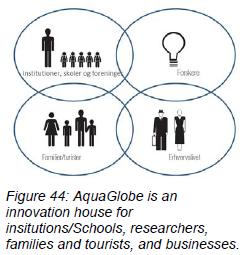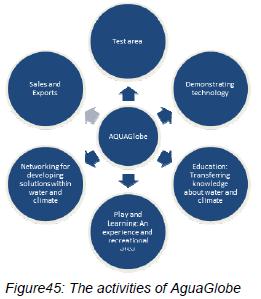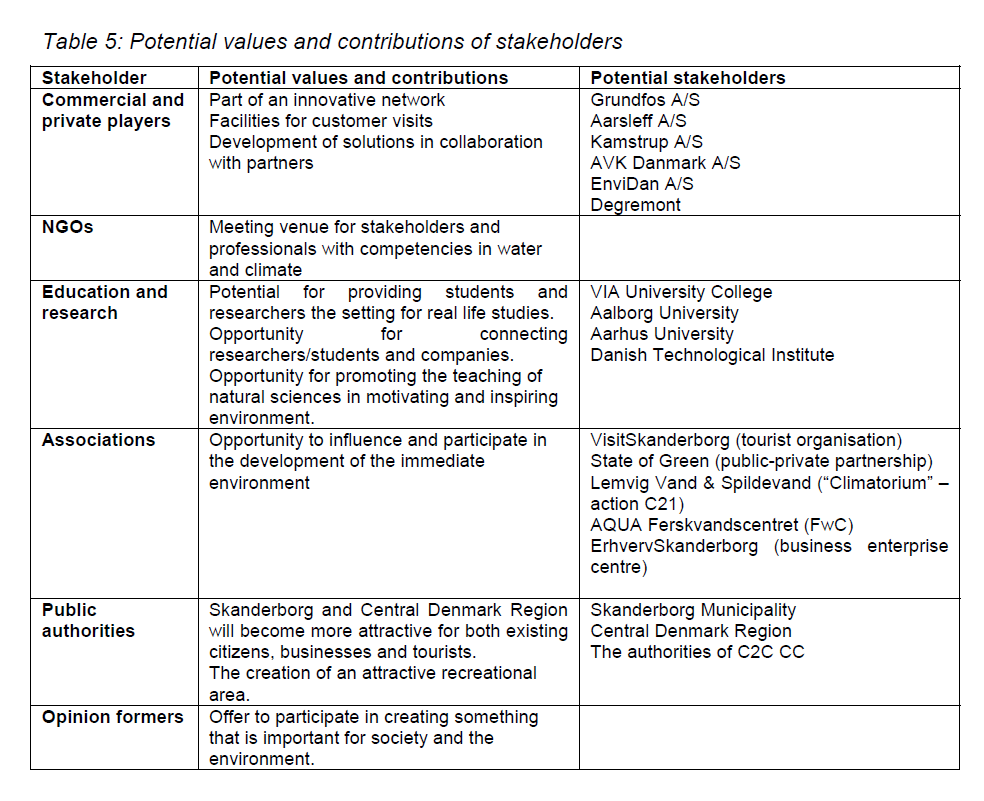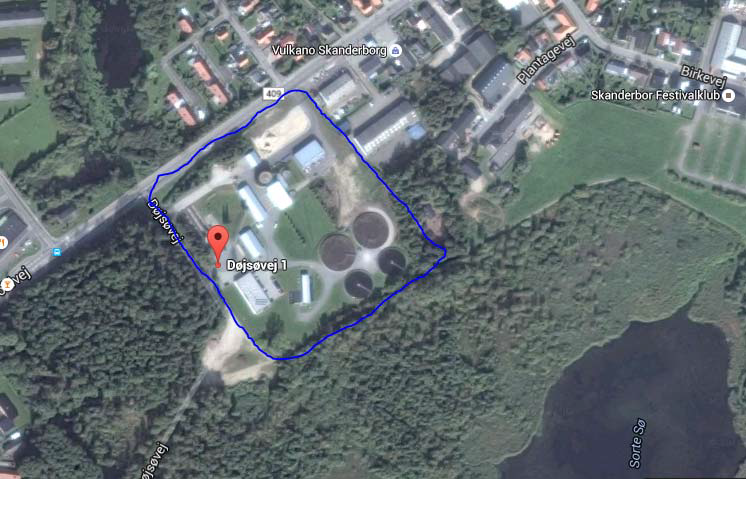The vision of AquaGlobe is to create a development and knowledge transfer centre, which will form the physical setting for a value-creating network between the business community, universities, Danish administrative regions, municipalities and water companies using tests, demonstrations and a showroom, and which is also a recreational and inspiring area for citizens, institutions and tourists.
By focusing on transferring an understanding of the water cycle, climate proofing, the countryside in the area and water as a resource, visitors will gain a better understanding of the climate in the future.
This action primarily links to innovation within all parts of the hydrological cycle apart from sea & fjords.
To develop and establish AquaGlobe, several stakeholders are to be involved.
Main responsible beneficiary: Skanderborg Utility A/S
Number of days estimated spent on action in phase 1: 605 Days
Budget: 275.223€
Beneficiary responsible for implementation: Skanderborg Utility a/s (SFV)
Role of Skanderborg Utility a/s:
- is project manager
- cooperates with primary and secondary stakeholders
- AquaGlobe supplements Action C21 Climatorium, which both deals with co-creation, quatror helix and awareness rising. AquaGlobe is focused on freshwater, C21 is focused on saltwater. All C2C CC action can use C20 and C21 for presentation of their results
Other stakeholders:
Local plans/Permits/SEA and EIA authority/activity Water School: Skanderborg Municipality
The stakeholders of the action are not fully clarified but work is being carried out to bring the stakeholders under ‘what’ the project:
Relation to Climate Change Adaption plans
This action relates to innovation and the need for developing new technology within CCA, and awareness raising among citizens mentioned in the CCA plans.




